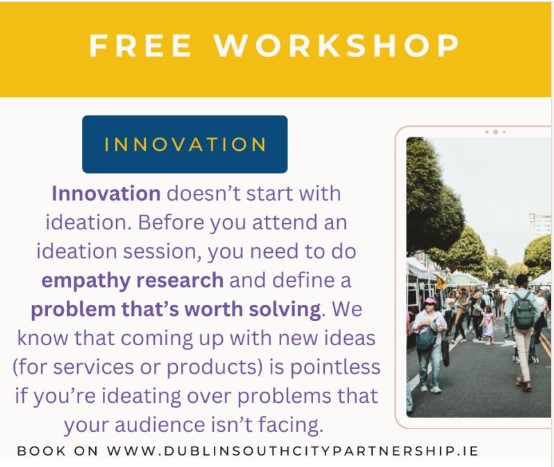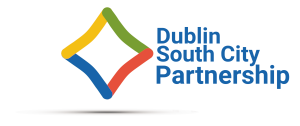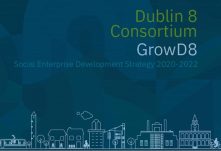Grow Dublin 8
Grow Dublin 8 is a consortium of local social enterprise stakeholders which exist to amplify the voice of our communities and promote awareness of social enterprise and their potential social impact on the radars of decision makers across our community sectors. We also carry out leading research to build the evidence base for local social enterprises as we are ideally placed having a diverse and strong grass-roots presence in our communities.
Dublin 8 area is located in south west Dublin city. It includes the Liberties and stretches as far as the Grand Canal to the south, and Inchicore and Kilmainham to the west. It has a population of 43,556 (according to census 2016) and like many city areas, includes areas of significant affluence as well as disadvantage. Dublin 8 attracts over three million visitors per year, making it a major tourism destination. The area has experienced significant development in the past few years, with plans for even more large-scale development. It is in this context that the Dublin 8 Consortium first came together in 2019. Its membership includes organisations with a strong history and track record in supporting social enterprise development in Dublin 8 and beyond. The members of the Consortium have long experience of collaborating in supporting and advancing the sector.
We believe that this strategy provides a strong basis for the further development of the social enterprise sector in Dublin 8. It is also timely, as the work of the Consortium has coincided with the launch of the National Social Enterprise Policy for Ireland (2019-2022) by the Department of Rural and Community Development. The strategy aligns its actions with the three key objectives of the strategy. There are many opportunities for the development of the social enterprise sector in Dublin 8. We look forward to working with social enterprises, the Department of Rural and Community Development and a wide range of stakeholders in realising these opportunities. We support and reach out to and involve the local council, businesses, charities, consumers and budding social entrepreneurs – bringing them together to grow social enterprise within our communities.
Social enterprise activity in Dublin 8 includes community facilities, walking tours, education and arts initiatives, reuse-and recycling initiatives, food production and retail, social finance provision, incubation space for enterprises, and manufacturing.
- The consortium’s vision for social enterprise in Dublin 8 aim to build markets and support for social enterprises at a national and local level.
- Social enterprise in Dublin 8 will tackle disadvantage and contribute to a more equal and inclusive society.
- Dublin 8 will be a test-bed and hub for social enterprises – with flagship social enterprises that act as a model contributing to national and international good practice and policy.
- Dublin 8 will have a thriving, vibrant, and sustainable social enterprise sector.
Building inclusive and resilient social economies
Building inclusive and resilient social economies
Grow D8 has grown from an idea to a growing network. This report looks in more depth at the activity and effects of the social enterprise ecosystem in Dublin 8 and the future potential and impact. In particular, it looks at:
- outcomes associated with the status and recognition
- qualitative and quantitative learning and findings into ‘what helps create a social enterprise culture within a community?’
- recommendations for those seeking to join us to build local, resilient social economies.
There are a wide range of social enterprises in Ireland and many organisations in Dublin South City already operate under this model across a number of diverse sectors.
HOT TOPICS IN SOCIAL ENTERPRISE
Social Innovation Social innovation is innovation that leads to a "change in social relations, involving new ways of doing, organising, knowing and framing.
Avelino et al. (2019)
For social innovation to progress amongst social enterprises a lot more work needs to be done on IP, franchising models, scaling and replication so that social innovation can have a licence to operate, align values and act as a learning laboratory for all of societies benefit. It’s how we collaboratively move forward on behalf of all our social innovators nationwide and address the challenges, like resources, conflicts, over reliance on voluntary work, lumpy/disjointed funding mechanisms and accept the scale of this challenge.
The Medium page Social TrendSpotter (2018), featuring bite-sized insights into the social sector, provides a brilliant explanation of the differences between social innovation, social enterprise and social entrepreneurship. Social innovation is about creating ideas for change; social enterprise is about the business model (for-profit or non-profit); finally, social entrepreneurship is all about the mindset. The Open book of Social Innovation provides a toolkit and adaptable frameworks emerging from the collaboration between Nesta and The Young Foundation. It offers tools and methods used across various social innovation sectors – ranging from private to public – and provides explanations into the process of social innovation and how it overlaps with social entrepreneurship and more importantly how to create the environment to foster it.
Source: Open Book of Social Innovation (Murray et al., 2010)
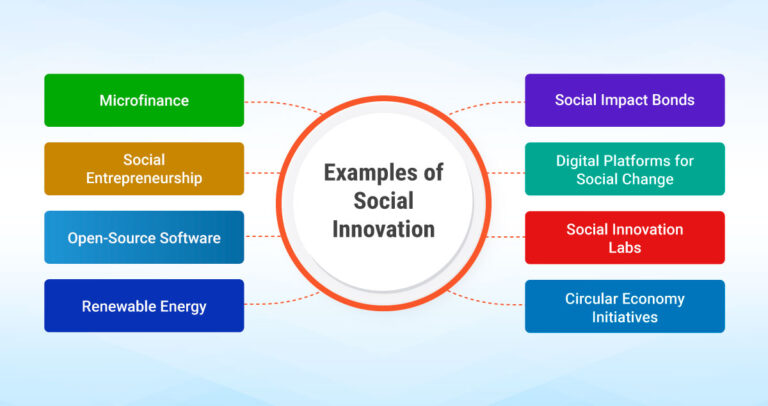
Design Thinking
At Dublin South City Partnership, we have recognised that design thinking can play a huge role in creating regenerative solutions to some of our communities “wicked problems “and entrenched challenges. So, we work across teams to ensure the good ideas and the innovations are getting through, from idea generation at environmental group meetings to the creation of repair and upcycle pop-up shops, community energy networks to launching vibrant community focused Fairs in historical buildings that showcase social enterprises. We also use Dublin South City Partnership social enterprises as a ‘test bed’ for suitable pilots to redefine their idea and for live focus groups. Design is a skillset and a mindset for making imagination a reality – some people describe it as the head: creative problem solving; the heart: empathy for people and planet; and the hand: making ideas into action. Social design is an inclusive process that is inspired by bringing together a diverse group of people from different backgrounds and working together to creatively solve a common problem or achieve a shared aspiration for community benefit. Design Thinking can be used as a vehicle to bring together communities, councils, designers and businesses together to solve some of the most urgent issues of our time.
The climate crisis requires a collective effort to address such a massive and wide-ranging set of challenges.
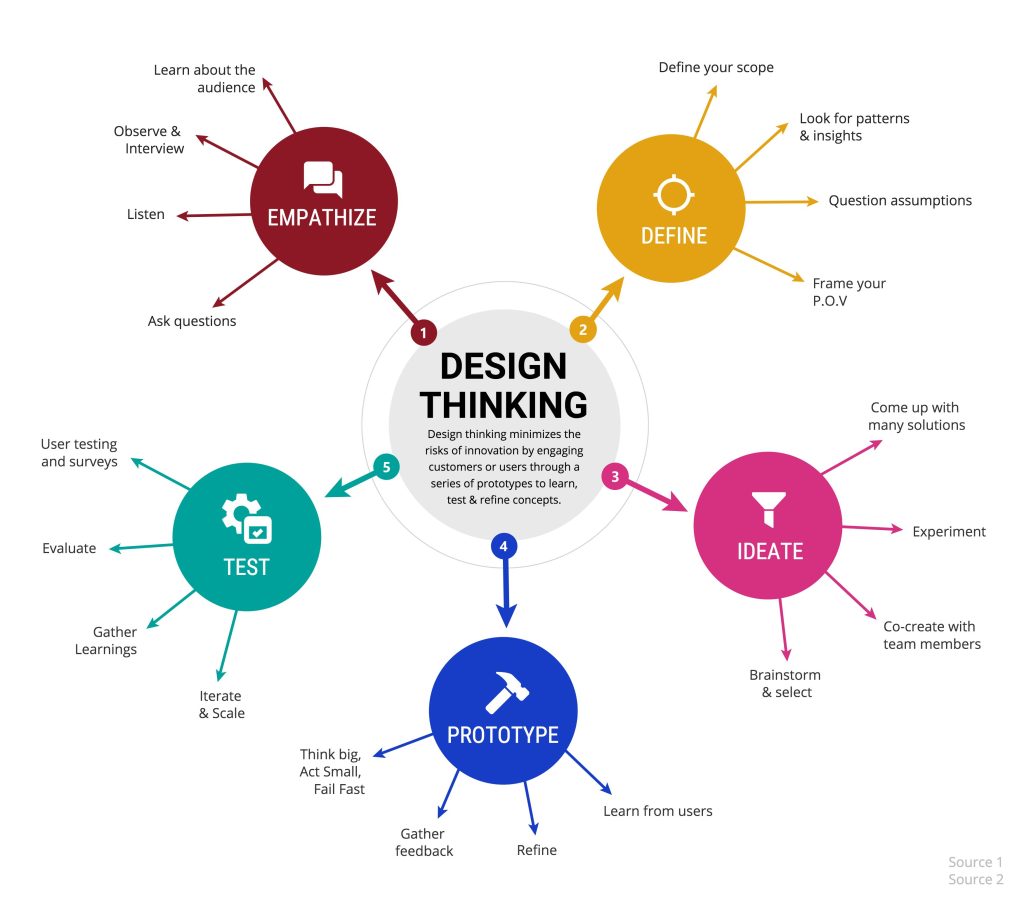
Innovation
We are constantly challenging popular cultural notions of innovation and looking at how to practically spread innovation at a grassroots level. We want our social/enterprises to understand the language and types of innovation, and the principles of building innovation systems, so that they can leverage it to their advantage. Dublin South City Partnership are frequently trying to understand the drivers of innovation, how we can embed technology and explore models of innovation and technological change that fit our community deficits. We are often examining innovation in practice and collaboratively discussing the context and the future of innovation
The Business Case for Social and Circular
In this free, interactive webinar, experts Claire Downey, Chris MM Gordon and Kate van der Merwe discussed the social and circular economies, and how these alternative economic models are sources of innovation for mainstream business. Presentations outlining key concepts, current practices, new policies and regulations, and connections with financial and risk management, were followed by a panel discussion and an opportunity to ask questions.
This webinar was delivered via Zoom on 18 October 2022 from 12 pm to 13 pm.
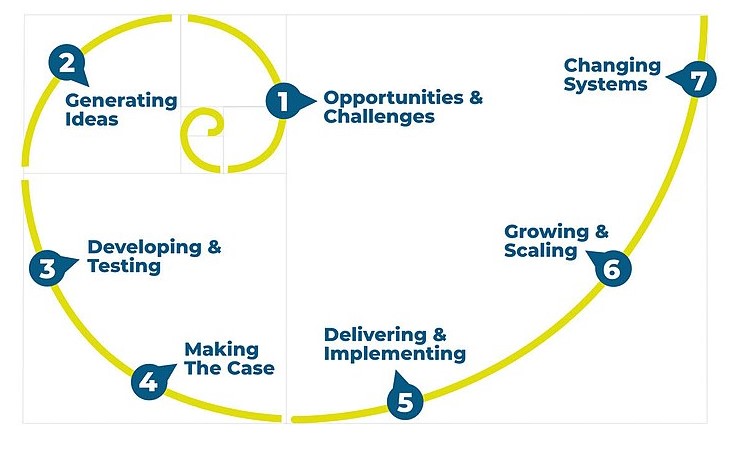
Source: Creative Commons Attribution-Share Alike 4.0 International
